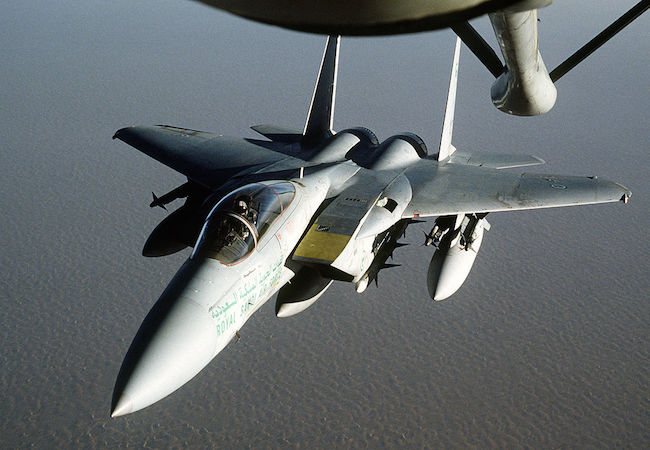GCC attacks Shias; How will Iran react?

By Zaher Mahruqi
Now that the GCC and other Arab nations have taken a bold and intensive intervention to prevent the Shia Houthis from placing Yemen under its full control, what are the likely retaliatory measures that Iran could take?
There are two choices for Iran and both are costly. On the one hand, Iran can’t afford to confront the Arabs and their allies in the form of the US and the EU. On the other hand, Iran definitely can’t afford to engage in a war that would make it an easy target for its other enemies, specifically Israel.
If Iran chooses to confront the GCC and her allies, Iran will have in its hands a costly war whose consequences are not short of its economic and military decline if not collapse. The GCC may have never been involved in war for a long time and might lack combat experience but the GCC has advanced weapons that can cause massive damage to Iran and her regional allies such as Hezbollah.
Even if the GCC is not able to stand alone against Iran, Neither the EU, neither the US nor indeed the rest of the world will allow the GCC to become unstable. The GCC is the world’s energy tank and as such Iran’s face off with the Gulf is the same as its confrontation with the world. Everyone is likely to suffer but Iran is likely to lose everything it has thus far achieved.
Iran enjoyed widespread support in the Arab world when it appeared to be the only country in the region ready and willing to engage the Zionist State. Arabs, however, will not support Iran and its endeavor to spread Sheeism across the region. Iran has pushed the envelope so much that Governments and the public alike in the Arab world have sharply turned against it.
To reiterate, a confrontational posture on Iran’s part will simply be destructive for many in the region but for Iran it could mean the end of the Persian nation as we know it. If Iran insists on its current course, it will eventually become the second Israel in the region in terms of seclusion.
Iran can choose not to engage in order to safeguard its own survival and viability but that too would have consequences for the identity of Iran as the Shia midfielder of the world. The Huthis in Yemen would consider Iran as a traitor to their cause which is in effect the major objective of Iran, to spread Sheeism in the world. Moreover, groups such as Hezbollah would start to question Iran’s loyalty to Shias across the globe.
Strategically, what is to be a expected is a continued proxy war between Sunni-Arabs and Iran within Yemen, Syria and Iraq. This is definitely the beginning of a prolonged Shia-Sunni war that would not end until one side is fully dominant. As Iran sends shiploads of weapons to Yemen, the possibility of a GCC attack on Iranian ship is high and as such a real face-off with Iran can’t be ruled out.
Enemies of the GCC have been identified at this point and they are in order of importance as follows: Iran, “Islamists”, and Israel. By its actions in Yemen, the Gulf has made a statement this time around that it does understand that the world has changed and that no matter how much it has tried to avoid military confrontations, it cannot control choices of its enemies and as such it has to be militarily ready; it has to be READY FOR WAR.
That means that Billions will now shift from social and economic programs unto military spending and that’s the price the GCC should be willing to pay. It would appear that this is yet another war in the region that will greatly benefit the likes of the US and France.
This is a sensitive juncture where the strength of the fabric holding the different sects of Muslims together is being tested. Islam is in essence in a process of putting its own house in order. The major questions that this phase will answer: Is the GCC the custodian of Islam and Arabs affairs under the leadership of Saudi Arabia or does Shia Iran have a say in the matter? Is the GCC a power to be reckoned with? Will Iran pressures the Huthis to a table for talks to avoid the unknown?
Will have to wait and see.




